Living with acid reflux and heartburn can be a daily struggle, impacting our comfort and overall well-being. Fortunately, there are ways to manage these conditions and alleviate symptoms through diet and lifestyle changes. These are some helpful, dietitian-approved tips on how to manage acid reflux and heartburn, including which foods to opt in and out of.
What Is Acid Reflux and Heartburn?
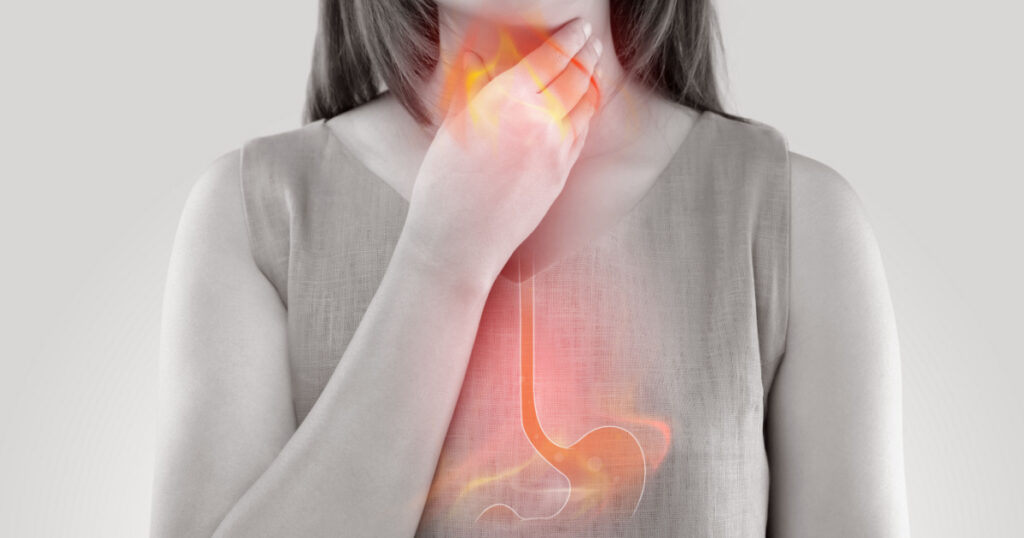
Acid reflux and heartburn are two related yet distinct conditions that can cause discomfort and pain in the chest and throat. Acid reflux occurs when the stomach’s contents, including stomach acid, travel up into the esophagus, which is the tube that connects the mouth to the stomach. This can happen due to a weakened or relaxed lower esophageal sphincter, which is the muscle that normally keeps stomach acid from flowing back into the esophagus. The presence of stomach acid in the esophagus can cause irritation and inflammation, leading to symptoms such as a burning sensation in the chest, a sour taste in the mouth, belching, and difficulty swallowing. (1)
Read: What to Drink When You Have Acid Reflux Symptoms (and What to Avoid)
Heartburn, on the other hand, is a symptom of acid reflux that specifically refers to the burning sensation in the chest that results from the stomach acid irritating the lining of the esophagus. Heartburn often occurs after eating, especially meals that are high in fat or acidic foods. It can last anywhere from a few minutes to several hours and may be exacerbated by lying down, bending over, or engaging in physical activity. While heartburn is a common symptom of acid reflux, not everyone who experiences acid reflux will necessarily experience heartburn, and heartburn can have other causes as well.
How To Manage These Conditions

While both acid reflux and heartburn are uncomfortable and annoying, they are relatively easy to manage. Incorporating these lifestyle and diet changes into your daily routine will help manage and abate symptoms. If you continue to have problems, speak with your healthcare practitioner.
1. Eat Smaller, Frequent Meals
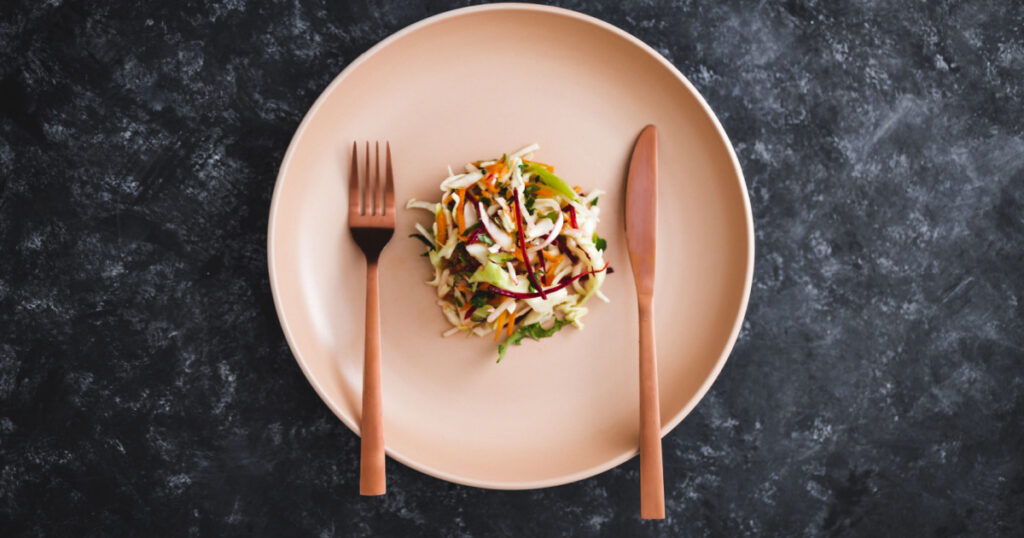
Registered dietitian and nutritionist Amy Shapiro suggests choosing smaller meals instead of three large ones. This helps avoid putting excessive pressure on the esophagus and reduces excess stomach acid production. Both of these can lead to heartburn.
2. Practice Mindful Eating

Eating slowly allows for better digestion and prevents overeating. When we chew our food thoroughly, it aids in the digestive process and gives our brain enough time to recognize when we are full. This can help prevent heartburn caused by overeating.
3. Avoid Late-Night Eating

It is crucial to cut off food intake at least three hours before bedtime. When we lie down, the food in our stomach puts pressure on the esophageal sphincter, leading to heartburn. By avoiding late-night meals, we can alleviate this pressure and reduce the chances of experiencing discomfort. You will likely get a better night’s sleep, too. “When you lie down, the food in your stomach presses on your esophageal sphincter,” Shapiro said. “By not having a lot of food in your stomach, your heartburn will decrease.” (2)
Read: 7 Signs You’re Suffering From Acid Reflux and How to Fix It
4. Incorporate Oatmeal
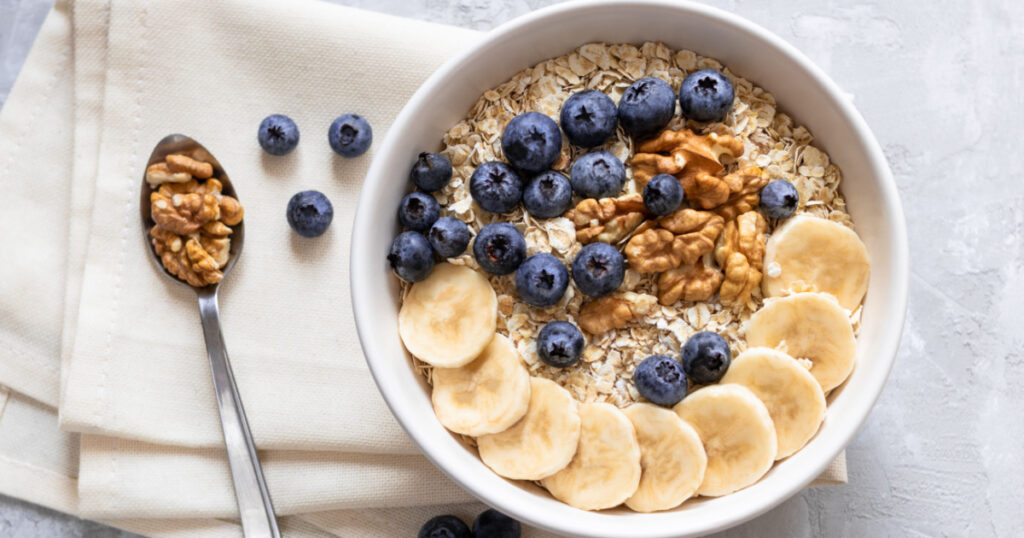
High-fiber foods like oatmeal can have soothing effects on heartburn. Whole grains, like oatmeal, along with low-acidity options such as bananas, cauliflower, and nuts, help offset stomach acid production. Registered dietitian Maggie Michalczyk suggests keeping preparations simple, so as to be easy on the digestive system.
5. Include Hydrating Foods
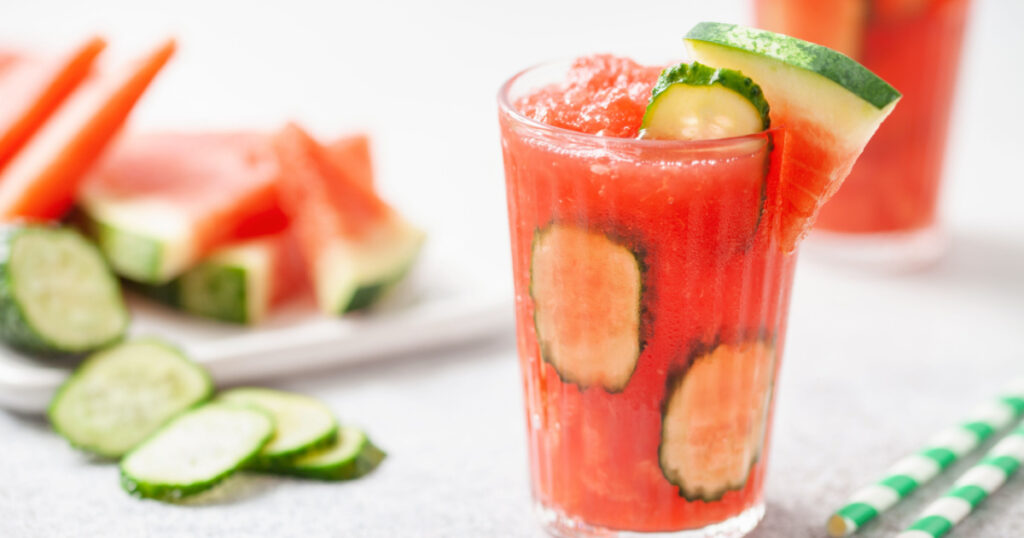
Foods with high water content, such as watermelon, lettuce, and cucumbers, can help weaken stomach acid and provide relief. These hydrating options can be refreshing and nutritious additions to our diet. In addition, they will help you better achieve your water intake for the day.
6. Embrace the Power of Ginger
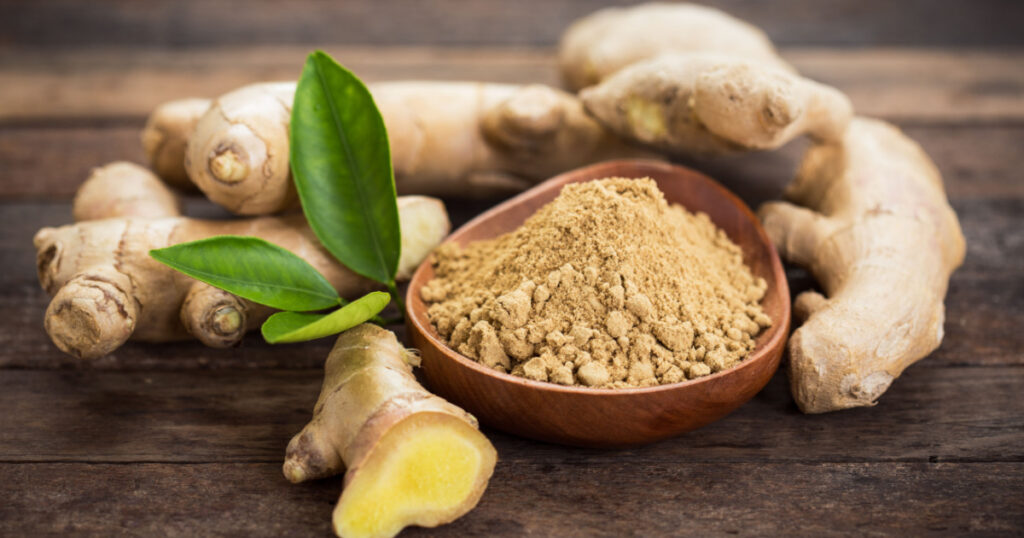
Ginger, known for its great impact on the digestive system, can also help with heartburn. Registered dietitian Michalczyk suggests keeping ginger tea on hand for immediate relief. Additionally, adding fresh ginger to morning smoothies is a cooler alternative.
7. Explore the Benefits of Vegetables
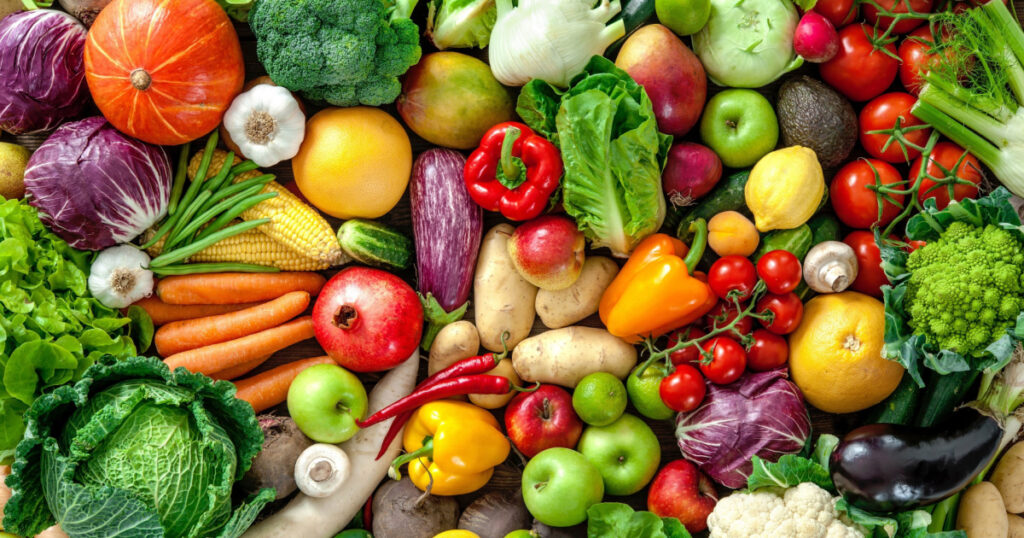
While vegetables may not be everyone’s favorite, they can be our best friends when it comes to heartburn management. Leafy greens, root veggies, and peas are gentle on the digestive system, improving digestion and preventing gastroesophageal reflux disease (GERD).
8. Introduce Parsnips

By incorporating parsnips into heavier meals, you can enhance the flavor without increasing fat content. This not only makes meals more satisfying but also helps in inhibiting reflux. Registered dietitian-nutritionist Kylene Bogden recommends using parsnips or potatoes to reduce the amount of heavy cream in a recipe.
9. Choose Low-Fat Yogurt
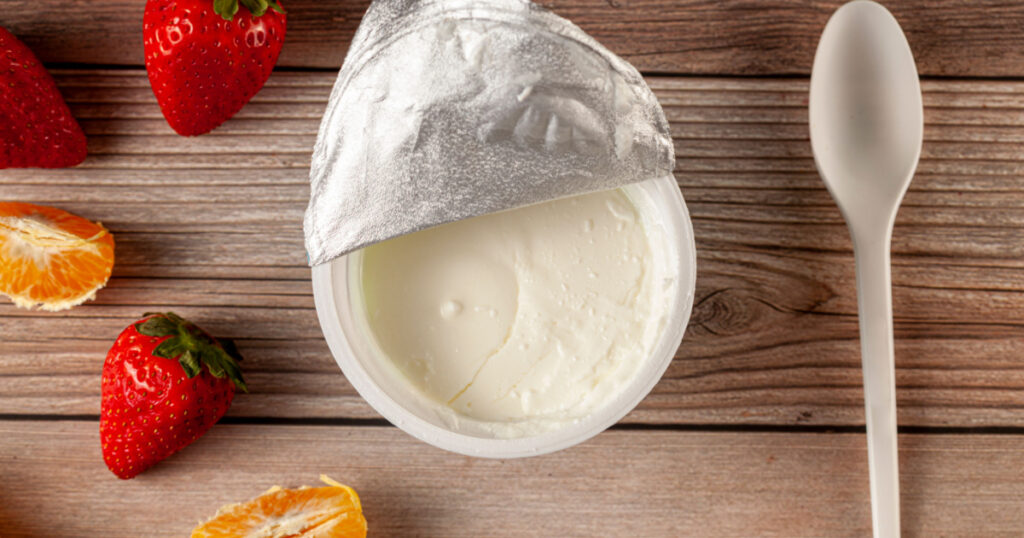
When dealing with heartburn, it’s best to opt for low-fat yogurt or milk. This is because fat can aggravate acid reflux symptoms. Low-fat dairy products, like yogurt, may alleviate symptoms during episodes. “Low-fat yogurt and low-fat milk may help relieve heartburn symptoms as they’re happening,” Michalczyk said. “It’s important that they’re low-fat though, because fat can further aggravate acid reflux.”
Read: 24-Year-Old Diagnosed With Stage 3 Cancer After She Overlooked Continuous Burping
10. Consider Aloe Vera

Often used for soothing sunburns, aloe vera can also alleviate acid reflux symptoms when consumed internally. Shapiro recommends blending it into a smoothie, making a soothing tea, or purchasing aloe vera juice for immediate relief.
The Bottom Line
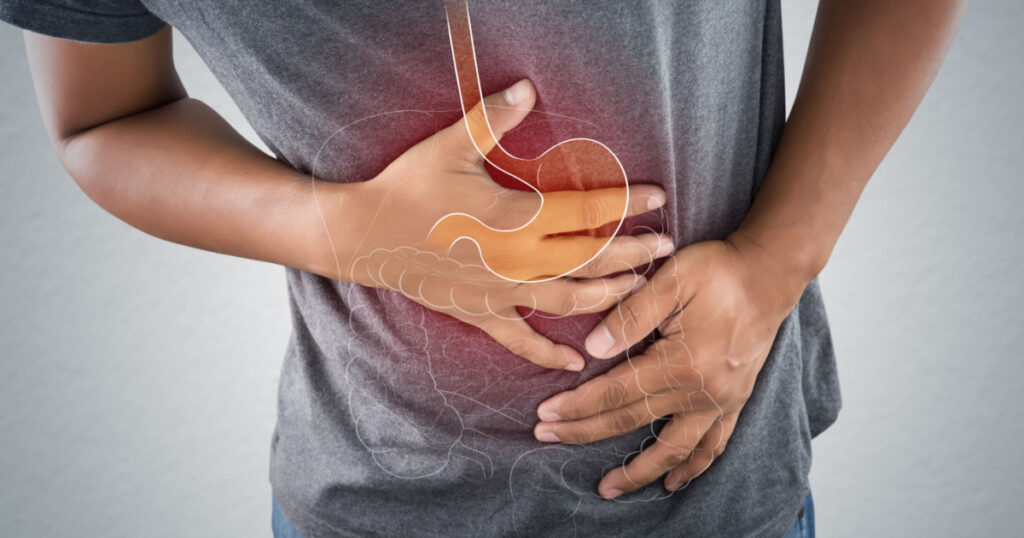
Acid reflux and heartburn can be challenging conditions, but with the right diet and lifestyle modifications, managing their symptoms becomes more attainable. The tips and food suggestions shared by dieticians provide a holistic approach to alleviate discomfort and promote better overall digestive health. By incorporating these recommendations into our daily routine, we can take control of our well-being and enjoy a life free from the constraints of acid reflux and heartburn. Remember, if symptoms persist, it is always best to consult with a healthcare professional for personalized guidance.
Read More: 7 Signs You May Have Collagen Deficiency
Sources
- “GERD Diet: Foods That Help with Acid Reflux (Heartburn).” Hopkins Medicine
- “Registered Dietitians Are Sharing Tips And Foods That Will Help If You Suffer From Acid Reflux And Heartburn.” Buzzfeed. Leigh Weingus. January 15, 2024
Disclaimer: This information is not intended to be a substitute for professional medical advice, diagnosis or treatment and is for information only. Always seek the advice of your physician or another qualified health provider with any questions about your medical condition and/or current medication. Do not disregard professional medical advice or delay seeking advice or treatment because of something you have read here.

